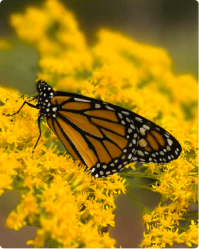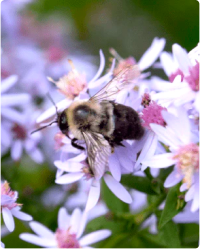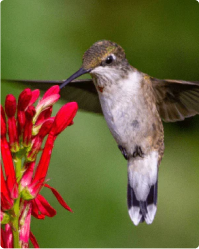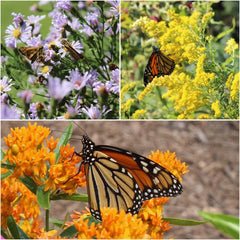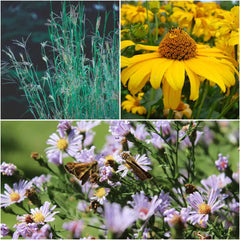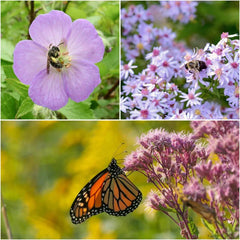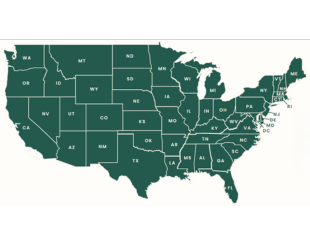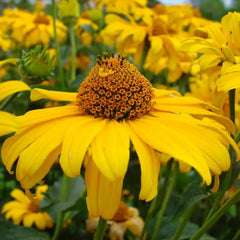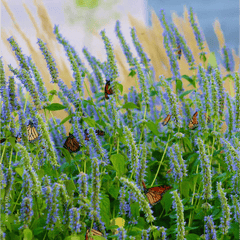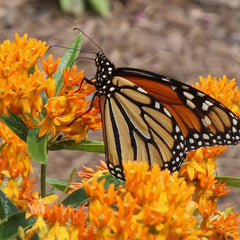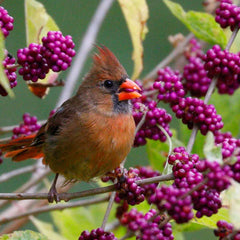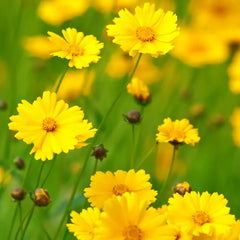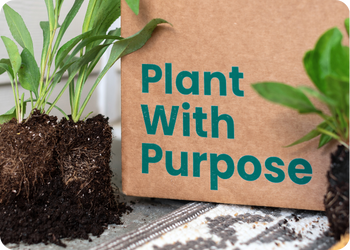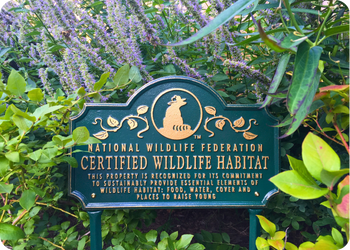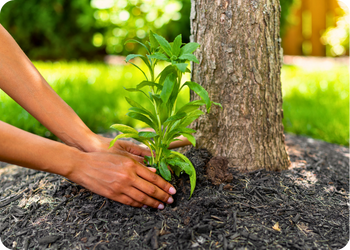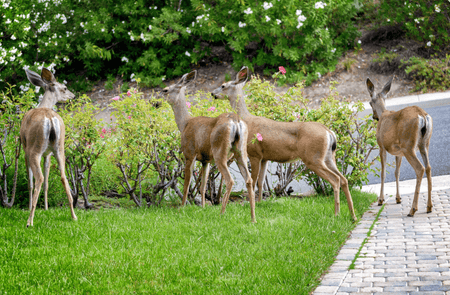Bats & Blooms: Creating a Bat-Friendly Native Plant Garden

Forget the stereotypes; bats aren't the spooky, dark creatures we often imagine them to be. In fact, they're vital to our ecosystem, playing a crucial role in pollination, pest control, and play a crucial role in maintaining the delicate balance of our ecosystems.
Let's talk about why bats deserve a spot in our hearts and gardens.

Pollination Power
Bats in the western U.S. are master pollinators, helping plants reproduce and thrive.
In the fascinating world of pollination, bats step into the spotlight as crucial players. While bees and butterflies often claim the pollination spotlight, bats contribute significantly. With over 1,300 bat species worldwide, each with its unique characteristics, these creatures are essential for the reproduction of numerous native night-blooming plants in the western U.S., including agave, yucca, and evening primrose. As bats feed on the nectar, they transfer pollen from one flower to another, facilitating the reproduction of these native plants.
Bats and native plants work together to promote ecosystem diversity. By aiding in the pollination of native plants, bats help maintain a variety of plant communities. These diverse plant communities, in turn, support a wide range of animal species that depend on these plants for food and habitat.
Nature’s Pest Control
Bats in the Eastern U.S. have a voracious appetite for insects, making them nature's pest control squad. Native plants often act as the primary food source for many insects, forming a critical part of the food web. The presence of these plants attracts a thriving insect population, making an area more attractive for bats. Thus, the health of native plant populations directly impacts the diversity of ecosystems.

Photo by: Gabriel Dokus, NWF
One little brown bat can consume 60 medium-sized moths or over 1,000 mosquito-sized insects in a single night!
Threats and Challenges
Both bats and native plants are facing an array of hurdles, including habitat loss, pesticide use, and the big one - climate change. The decline in bat populations threatens to disrupt the delicate balance of ecosystems, jeopardizing their health and diversity.
With a decline in bat populations due to habitat loss and climate change, creating bat-friendly spaces is more critical than ever. Supporting native plant populations becomes a crucial aspect of bat conservation.
Create a Bat-Friendly Habitat
How you can turn your garden into a buzzing haven for these incredible creatures.
So, how can you make your garden the ultimate bat-friendly paradise? Well, the secret lies in going native. Yep, it's time to ditch the exotic and embrace the local flora. Let's embark on this green journey together and create a garden that not only looks beautiful but also supports our winged friends.
Choosing the Right Plants
Native plants are like a bat's version of comfort food. They've evolved together, creating a harmonious relationship that benefits both parties. Native plants attract exponentially more insects than non-natives, and insects are the favorite food of most eastern U.S. bat’s favorite food.
When using plants for your space keep in mind light conditions, soil types and moisture levels. Native plants are adaptable to a wide range of growing conditions, ranging from dry shade to full sun and wet soil. Opt for species that entice insects such as moths and beetles. Check out The Beginners Guide to WIldlife Gardening with Native Plants for tips on creating a garden that fits your space.
Some bat-friendly native plants that will attract the insects bats love:

- Wild Bergamot (Bee Balm), Monarda fistulosa
- Spotted Beebalm, Monarda punctata
- Purple Coneflower, Echinacea purpurea
- Cardinal Flower, Lobelia cardinalis
- Foxglove Beardtongue, Penstemon digitalis
- Smooth Blue Aster, Aster laevis
Water for Bats
Bats need water, both for drinking and hunting insects. Set up a small water feature like a bird bath, shallow dish or even a shallow pond. Keep it fresh and clean, and you'll have a bat-friendly oasis in no time.
Read: Wildlife-Friendly Water Features
Skip the Chemicals
Pesticides and herbicides might promise a pristine garden, but they also harm the very creatures you're trying to attract. Native plants thrive in their native surroundings as they have evolved to adapt to specific local conditions. Consequently, once established in a garden, they typically demand less maintenance compared to non-native species.
Their natural adaptation to the soil, climate, and weather patterns of the region reduces the need for water, fertilizers, and pest control. This not only results in substantial water conservation in your garden but also aligns with sustainable gardening practices.
Compost and Mulch
Create a bat buffet of bugs by adding organic compost and mulch to your garden. This not only enriches the soil but also attracts insects, providing a scrumptious feast for your winged visitors.
Light the Night Right
Bats are not fans of bright lights, and excessive lighting can disrupt their feeding patterns. Consider installing motion-activated lights or low-intensity, red-colored bulbs. This way, you'll keep the night sky dark and the bats undisturbed.
Bat Houses
Bats are creatures of the night, so think about incorporating elements that enhance their nocturnal lifestyle. Contrary to common belief, not all bats dwell in caves. Many spend their summers in trees, beneath bridges, or in old structures where they give birth and raise their young.
Install a bat house – a cozy spot for them to roost during the day. These houses mimic the natural hollows in trees that bats love. The design of a bat house mimics the snug spaces found between tree bark and a tree trunk, creating an ideal nursery for bats. It also addresses the challenge of providing warmth for bat offspring by using dark colors and caulk to retain heat. Building a bat house serves the purpose of providing an alternative roosting option for bats, especially in areas where deforestation has reduced natural habitats.
Bat Houses can be purchased or you can build your own.
And there you have it – a crash course in turning your garden into a bat-friendly paradise. It's not just about making your space look pretty; it's about contributing to the well-being of our environment and its incredible inhabitants. So, grab your gardening gloves, get dirty, and let's make the world a better place – one native plant at a time!
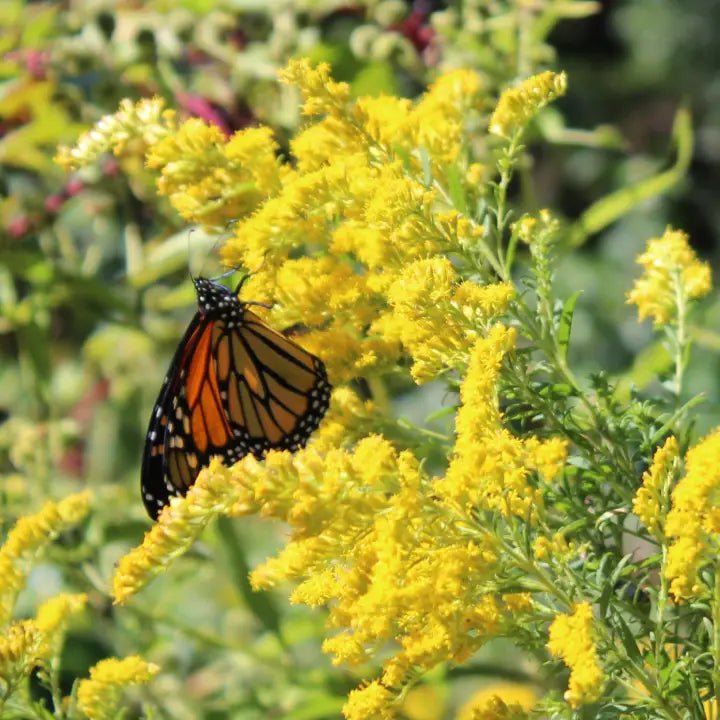
Find Native Plants by Zip Code
We took the guesswork out of planting native. Check your zip to see what ships!
